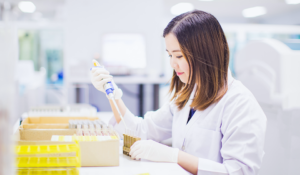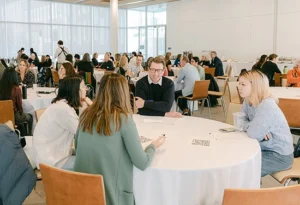
“Alone we can do so little; together we can do so much.”
– Helen Keller, Disability rights advocate
Since our founding 50 years ago, JDRF Canada has helped fuel almost every advancement in type 1 diabetes (T1D) care and cure research by bringing together the T1D community, donors, researchers, and funding partners to work towards the same vision – a life without T1D.
Through our partnership with the federal government, the Canadian Institutes of Health Research (CIHR) matches all donor investments 1:1 toward high-impact Canadian T1D research grants, meaning donations to this partnership make double the impact on critical T1D research.
3X Match
Over 50 days, double the impact will become triple the impact thanks to the incredible generosity of one of our dedicated board members, who is matching all Campaign to Accelerate gifts ($5,000 and up) to the JDRF-CIHR Partnership to Defeat Diabetes up to $1M. With donor support help, we can turn $1 million into $3 million for groundbreaking research in Canada.
This 3X Triple Match funds innovative projects in cell therapies, precision medicine, mental health, and nationwide T1D screening that advance care, early treatment, and promising pathways to T1D cures.
To learn more or make a 3X match leadership gift, contact Kim Lacombe.
LEARN MOREIn Cures
Dr. James Shapiro is exploring whether a person’s own blood cells (reprogrammed into islet-like cells for transplant) can be used as the basis for therapy instead of donor tissue.
“I’m very excited about the progress of T1D research, especially within the last five years. But I believe that a cure is really within all our grasps. It’s going to require intense collaborative scientific effort and a lot of funding, but I firmly believe this is possible and will happen,” says Dr. James Shapiro, University of Alberta.
Dr. Cristina Nostro is testing gene-edited stem cell-derived islets for transplant that would not require the immunosuppressive drugs typically needed in cell replacement procedures.
“In the last 20 years, we’ve learned how to differentiate stem cells [into beta cells], and now we’re moving them to the clinic, and they’re giving us the results we want. The future is bright. I’m super excited,” says Dr. Cristina Nostro, University of Toronto.
In T1D Management
Dr. Farid Mahmud recently published his trial results showing that a drug called Dapagliflozin can improve glucose control and kidney health in youth with T1D. Dr. Mahmud is also leading the EVERYONE study, which examines the impact of diversity on diabetes management in youth, intending to personalize care for better outcomes.
“We’re looking at how we can optimize care and prevent complications. We work with patient partners – families and parents – and all our studies are designed with these partners to develop the best ideas relevant to care,” says Dr. Farid Mahmud, SickKids.
In Mental Health
Dr. Holly Witteman is creating a research-based national peer support program led by people with T1D to improve the mental health and quality of life of the T1D community.
“As a scientist who has lived with type 1 diabetes since childhood, I know how important it is to be able to connect with others who really understand life with T1D. The CommuniT1D project aims to provide helpful, sustainable peer support for people living with T1D and their families across Canada so that no one has to feel alone,” says Dr. Holly Witteman, Université Laval.
In Early Detection
JDRF and the CIHR launched a nationwide T1D screening research consortium last year, hoping to implement general population screening to help eliminate life-threatening diagnosis complications and introduce future early intervention therapies to delay T1D onset.
“This project is near and dear to my heart because my son was diagnosed with type 1 diabetes when he was just two years old. He was extremely sick, and his body was weak. Life changed, and I had no idea there was even a possibility of T1D in our family, being affected by the 60s Scoop. I hope to identify barriers and provide resources while giving diabetes support and fostering relationships between Indigenous communities and researchers,” Sasha Delorme, Diabetes Action Canada, Indigenous research lead, JDRF-CIHR CanScreenT1D.
Collectively, the projects donors fund through the JDRF-CIHR Partnership make a profound impact now while supporting future T1D breakthroughs.
JDRF is working with its Campaign to Accelerate volunteer leaders to maximize this remarkable triple-match opportunity, which will drive significant advancements in Canadian research and positively affect the lives of nearly 300,000 people living with T1D nationwide.



